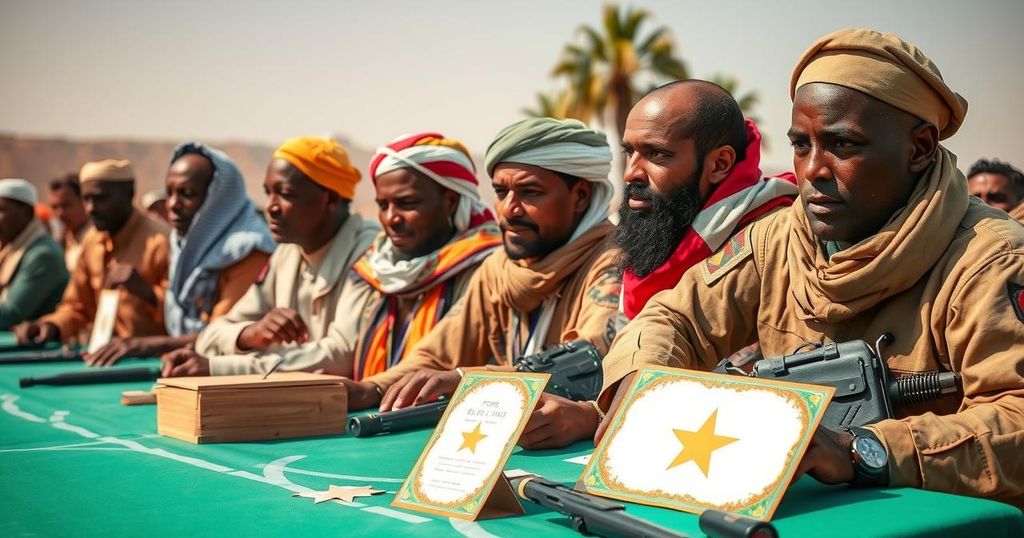Chad’s military and nomads voted in early general elections amid opposition boycotts. The government views these elections as a move towards democracy, while critics label them a sham. Noteworthy is the backdrop of security threats and pressing challenges faced by nomadic tribes due to climate change. President Mahamat Deby pursues legitimacy after assuming power in 2021, following his father’s long rule.
On Saturday, members of Chad’s military and nomadic communities participated in general elections, which the government heralds as a pivotal step toward democracy. However, opposition parties have dismissed these elections as illegitimate, urging citizens to boycott the process entirely. The majority of the electorate will vote on Sunday to elect a national parliament, regional assemblies, and local councils. Armed forces and nomads voted a day early for logistical purposes, with reports indicating a turnout of approximately 45 percent from both groups by midday. Senior election officials observed a smooth voting process at military polling sites, affirming the freedom of military personnel in casting their votes. Nomads expressed their hope for elected officials to address pressing issues such as climate change, which has severely impacted their livelihoods. These elections occur amidst regional unrest, including ongoing violence from Boko Haram and tensions linked to Chad’s involvement in Sudan’s conflicts. President Mahamat Idriss Deby Itno, who assumed leadership in 2021 after his father’s death, views these elections as essential for progressing toward democratic governance. Previous legislative elections were held in 2011, with various postponements since then due to security threats, financial hurdles, and the coronavirus pandemic.
Chad has faced significant political turmoil, particularly following the death of long-time leader Idriss Deby Itno in 2021. His son, Mahamat Idriss Deby Itno, took power, promising a transition to democracy, which has yet to be realized. The country remains under considerable strain due to intermittent violence from extremist groups like Boko Haram and environmental challenges that affect nomadic communities. The elections serve as an attempt by the current government to establish legitimacy and stability, despite widespread skepticism from the opposition.
The general elections in Chad represent a significant moment in the country’s ongoing struggle for democratic governance. While the military and nomadic groups engaged in the electoral process, opposition parties contest the legitimacy of these elections, underscoring the deep divisions within Chad’s political landscape. Moreover, the timing of these elections amid rising security threats in the region poses crucial challenges to the government’s claims of moving toward a stable democratic future.
Original Source: www.barrons.com






